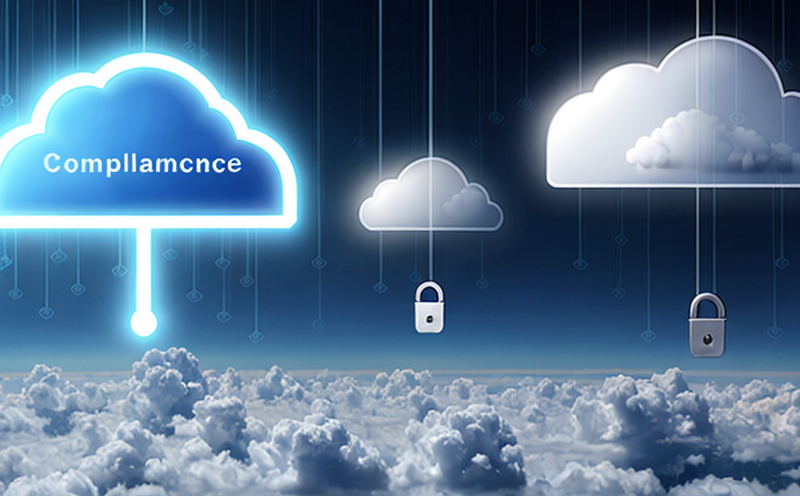ISO 38505 Data Governance Testing in Cloud Systems
The ISO/IEC 38505 standard provides a framework that enables organizations to implement and manage data governance processes effectively. This service focuses on testing cloud systems against these standards, ensuring compliance with best practices in data management.
Data governance is critical for maintaining the integrity, security, and usability of an organization's data assets. In cloud environments, data governance becomes even more complex due to the distributed nature of data storage and access control mechanisms. Our service ensures that your cloud systems adhere to industry standards such as ISO/IEC 38505 by providing a comprehensive testing process.
The testing process involves several steps including:
- Reviewing current policies, procedures, and controls
- Evaluating the alignment with ISO/IEC 38505 requirements
- Conducting gap analysis to identify areas for improvement
- Implementing corrective actions based on findings
- Performing ongoing monitoring and audits
This rigorous approach ensures that your cloud systems are not only compliant with ISO/IEC 38505 but also prepared for the challenges of modern data management. By leveraging this framework, organizations can enhance their ability to manage risks associated with data security, privacy, and integrity.
Our team of experts uses advanced tools and methodologies to conduct these tests, ensuring accuracy and reliability. We provide detailed reports that outline our findings and recommendations, helping you make informed decisions about your cloud infrastructure. This service is particularly valuable for organizations looking to improve their compliance posture or prepare for certification audits.
Customer Impact and Satisfaction
By ensuring compliance with ISO/IEC 38505 standards, our service helps customers achieve several key benefits:
- Enhanced Data Security: Protect sensitive information against unauthorized access or breaches.
- Better Compliance: Avoid penalties and legal issues associated with non-compliance.
- Improved Efficiency: Streamline data management processes to reduce costs and improve productivity.
- Increased Trust: Build confidence among stakeholders by demonstrating a commitment to best practices.
We understand that every customer has unique needs, which is why we tailor our services to meet those specific requirements. Our goal is to provide value-added insights that contribute directly to your business objectives. Whether you're looking to enhance security measures or streamline internal processes, our experts are here to support you.
Customer satisfaction is at the heart of everything we do. We strive to exceed expectations by delivering high-quality results within budget and on time. Our approach fosters long-term relationships based on trust and mutual respect. If you're considering implementing data governance strategies in your cloud environment, let us help you achieve your goals.
International Acceptance and Recognition
The ISO/IEC 38505 standard is widely recognized across industries for its robust approach to data governance. Here’s a list of some key organizations that have adopted or are in the process of adopting this standard:
- NIST (National Institute of Standards and Technology): The US government agency has endorsed ISO/IEC 38505 as part of its cybersecurity framework.
- Cybersecurity Frameworks: Many countries, including the UK and Australia, have integrated this standard into their national frameworks for data security.
- Industry Associations: Leading associations such as ISACA and IEEE are promoting ISO/IEC 38505 to enhance best practices in IT governance.
The global adoption of ISO/IEC 38505 underscores its importance in the cybersecurity and technology sectors. By aligning with this standard, organizations can ensure they meet international standards while also addressing local regulatory requirements.
Environmental and Sustainability Contributions
Data governance plays a crucial role in promoting sustainability within the cloud computing industry. Proper management of data resources helps reduce energy consumption and associated carbon footprints. Here’s how our service contributes to environmental sustainability:
- Resource Optimization: By ensuring efficient use of data storage and processing, we help minimize resource wastage.
- Emission Reduction: Reduced energy consumption leads to lower greenhouse gas emissions, contributing positively to global efforts against climate change.
- Sustainable Development: Aligning with international standards supports broader sustainable development goals by fostering responsible use of technology.
Our commitment to sustainability extends beyond just the technical aspects. We also promote awareness and education around eco-friendly practices within the industry, helping to drive positive change at both organizational and societal levels.





